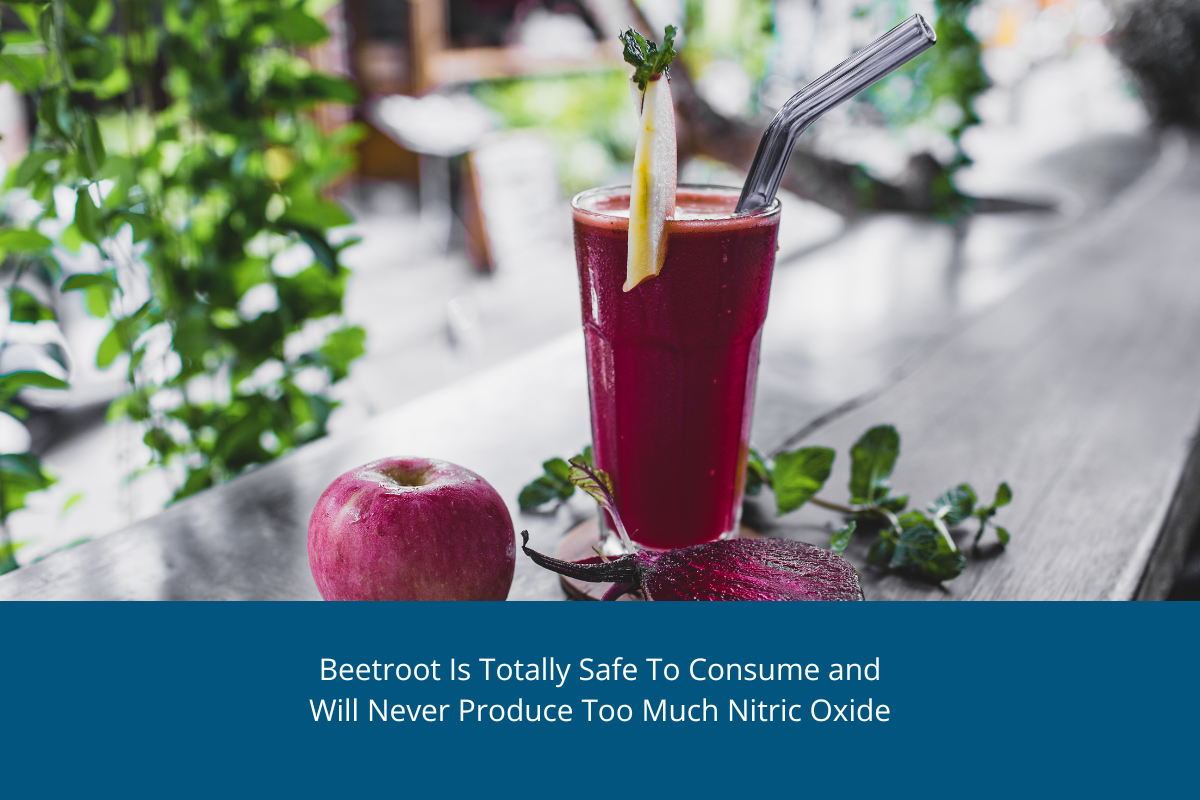People Are Asking, Can Nitric Oxide Be Harmful?
Introduction
Nitric oxide has increasingly made the news rounds and been a topic of conversation. It is a vital molecule that signals various processes in the human body. The most notable process is helping to relax and dilate blood vessels. This improves blood flow and reduces blood pressure. It also supports immune function and nerve signaling. Interestingly, supplements marketed to boost nitric oxide don’t actually contain the molecule itself. Instead, they contain ingredients that stimulate the body to produce more nitric oxide naturally.
So, Can Nitric Oxide Be Harmful?
If you are concerned about having too much no because of some supplement, then you can stop here. You are totally safe.
No supplement has nitric oxide in it. They all work by stimulating your body to produce nitric oxide. And your body will almost always stop making it, well before any harmful levels would develop.
Amino Acids Like L-arginine
It is true that taking significantly high doses of L-arginine can potentially lead to various side effects. Excessive intake of L-arginine is more typically associated with gastrointestinal discomfort, changes in blood pressure, electrolyte imbalances, and other systemic reactions rather than directly causing dangerously high levels of nitric oxide. The exact same is true for citrulline. The specific concern of producing too much nitric oxide isn’t commonly highlighted in scientific literature. So it’s just not something to be concerned with.

What About Beetroot? Can Nitric Oxide Be Harmful From Beetroot?
Beetroot is effective at increasing nitric oxide levels due to its high nitrate content. It does so in a way that is generally considered safe. It is not likely to lead to overstimulation of nitric oxide production. This moderation occurs because the conversion process from nitrates to nitric oxide is naturally regulated by the body’s own mechanisms. The body converts what it needs through a controlled pathway that begins in the mouth and continues in the stomach. This is key to avoiding the risk of excessive nitric oxide production that could occur with direct supplementation of nitric oxide precursors in high doses.
Gradual Increase Of NO
The increase in no from consuming beetroot is gradual and dependent on individual body chemistry and bacteria in the mouth. This further ensures that it does not lead to the spikes in nitric oxide levels that could potentially be harmful. This makes beetroot a safe and natural way to support cardiovascular health through moderate enhancement of nitric oxide levels.

If you are concerned about maintaining optimal levels of nitric oxide, consider incorporating the following supplements and vitamins that can help ensure your body regulates it correctly:
Vitamins
Vitamin C – This antioxidant helps enhance the bioavailability of nitric oxide by stabilizing it and extending its functional lifespan in the bloodstream.
E – Known for its antioxidant properties, Vitamin E can also aid in the protection of cells and the enzymes responsible for nitric oxide production.
D3 – Adequate levels of Vitamin D are essential for cardiovascular health and may influence nitric oxide synthesis.
Herbs
Hawthorn Extract – Commonly used to support cardiovascular health, hawthorn increases the activity of enzymes that produce nitric oxide.
Grapes
Grape seed extract – is beneficial for regulating nitric oxide levels due to its high content of antioxidants, particularly oligomeric proanthocyanidin complexes (OPCs). These antioxidants are effective in several ways: Enhancing Nitric Oxide Production: Grape seed extract can help increase the production of nitric oxide by enhancing the activity of nitric oxide synthase, the enzyme responsible for its synthesis. This enzyme’s activity is positively influenced by the antioxidant properties of the extract, which reduce oxidative stress within blood vessels.
Protecting Nitric Oxide: The antioxidants in grape seed extract help protect nitric oxide from oxidative degradation. By reducing oxidative damage, more nitric oxide remains available and active in the bloodstream, which improves its overall effectiveness in dilating blood vessels and enhancing blood flow.
Improving Vascular Health: By supporting the integrity and function of blood vessels, grape seed extract helps maintain an environment where nitric oxide can be most effective. Healthy vascular conditions allow for better regulation and utilization of nitric oxide, ensuring it performs its critical roles in cardiovascular health efficiently.
Fruits & Berries
Camu camu – is a small, sour berry native to the Amazon rainforest. It’s celebrated primarily for its extraordinarily high vitamin C content, often cited as one of the richest natural sources. This makes camu camu a powerful antioxidant that can help boost immune function, protect skin health, and potentially reduce inflammation. Additionally, the high vitamin C level may aid in the natural production of nitric oxide, enhancing cardiovascular health through improved vascular dilation and blood flow.
Watermelon – is not only a refreshing fruit but also a significant source of the amino acid L-citrulline, which is important for cardiovascular and muscle health. When consumed, L-citrulline is converted by the kidneys into L-arginine and then into nitric oxide. This process helps to improve blood flow and lower blood pressure. Watermelon also contains various vitamins and antioxidants, contributing to hydration and overall health, making it both a delicious and nutritious choice.
